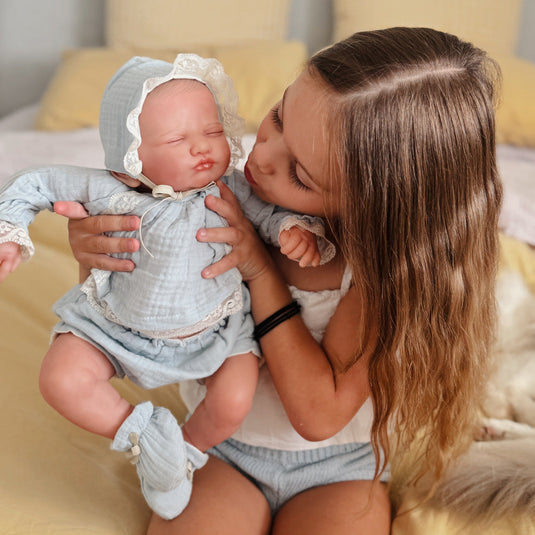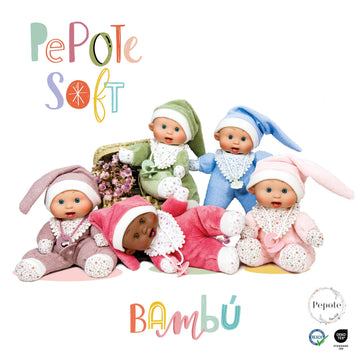Little Known Facts About Dolls And Accessories.
Little Known Facts About Dolls And Accessories.
Blog Article
Fascination About Dolls And Accessories
Table of ContentsDolls And Accessories - An OverviewAn Unbiased View of Dolls And AccessoriesEverything about Dolls And AccessoriesThe 8-Minute Rule for Dolls And AccessoriesNot known Details About Dolls And Accessories The smart Trick of Dolls And Accessories That Nobody is Talking AboutSome Known Incorrect Statements About Dolls And Accessories
When dolls are consisted of in team play, youngsters exercise waiting, sharing, and paying attention to others' concepts. Whether they're acting to be a moms and dad, sibling, or close friend, kids discover how connections workhow to support others, fix disputes, and take care of another person. These early role-play experiences end up being the groundwork for healthy friendships and relationships later on in life.Duplicating soothing routines with a doll (feeding, shaking, putting to bed) can aid children really feel calm and safe. Taking care of a doll can make a youngster really feel capable and certain.
Dolls And Accessories Fundamentals Explained
When kids see dolls that reflect their race, heritage, and culture, it enhances a positive feeling of identity. It states, "You belong. Your story matters." Dolls additionally introduce children to societies outside their very own, building respectful inquisitiveness and empathy for others. This is where comprehensive play can bring about inclusive areas.
As Dr. Karyn Purvis, a leader in child development and trauma-informed treatment, when claimed: This powerful quote highlights how play isn't just funit's exactly how kids discover ideal. The brain cords itself through repeating. Yet when a youngster is engaged, cheerful, and mentally connected to an activitylike doll playthe brain enhances those connections quicker and extra meaningfully.
Getting The Dolls And Accessories To Work

Boys need empathy, generosity, and creativity tooand doll play uses that. Dolls are often a child's first "good friend," aiding them exercise relationships, build interaction abilities, and feel comforted.
The Best Strategy To Use For Dolls And Accessories
With dolls that matter. Samantha Ong Samantha Ong is the founder of Joeydolls, a Canadian-based toy brand name on a mission to commemorate Eastern cultures via cheerful, comprehensive play. Influenced by her own experiences growing up without cultural depiction, Samantha creates dolls that help youngsters feel pleased of who they are while stimulating inquisitiveness and empathy in others.
Playing with dolls motivates children to speak more regarding others' ideas and feelings, a study has actually discovered. The research recommends that playing imaginary video games with dolls could help children develop social skills, concept of mind and empathy.
The Main Principles Of Dolls And Accessories
They were likewise more probable to attend to the dolls in the 2nd individual, speaking with them directly, whereas the personalities on the computer system display they had a tendency to describe in the third person. No distinction was observed in between kids and women."Inner state language can show that a kid is considering various other individuals's thoughts and feelings while having fun with dolls," claimed Gerson.
And that they see language usage in this regard is great confirmation of the theory."Mardell added that the searchings for should certainly apply to any sort of role-play toy, instead than being details to Barbies. "I 'd take a wider sight of what a doll is," he stated." [It can be] any type of item that the youngster can spend view it now a feeling of other into a packed pet, an oven glove that speaks to them, or even a fictional good friend."Children normally begin to show signs of inner state language around the age of four.
The Only Guide to Dolls And Accessories
"It comes to be important for making and maintaining friendships, and exactly how they gain from their instructors, and moms and dads."The research additionally found that the children had actually boosted mind task in the posterior remarkable temporal sulcus (pSTS) area when they talked as though their dolls had thoughts and feelings. The pSTS region is believed to be entailed in the growth of social and emotional processing skills.
Childhood is not a static life stage; without a doubt, the interpretation, meaning and understanding of youth are all based on alteration. By the nineteenth century among one of the most extensive modifications was the relevance placed on permitting youngsters to experience "the carefree happiness" of childhood with play activities. Play was now taken into consideration to be an important element of a great childhood years.
In order to completely recognize the significance of play, one have to likewise recognize the significance of the doll. Dolls are much even more than toys made to captivate young women. During the nineteenth century appropriate play tasks were selected to promote intellectual, physical or emotional growth. Dolls were specifically popular due to the fact that they were assumed to foster and support womanly high qualities such as kindness, caring and concern.
Our Dolls And Accessories Ideas

It is only through archaeological investigations that researchers can want to reveal and record the complete series of playtime experiences. Chronicling these experiences, and particularly the function of dolls, is essential for providing a much more full image of youth during the nineteenth century. Alarcn, Sara E - dolls., "Kid's Play: The Duty of Dolls in 19th Century Youth" (2007 )
Report this page